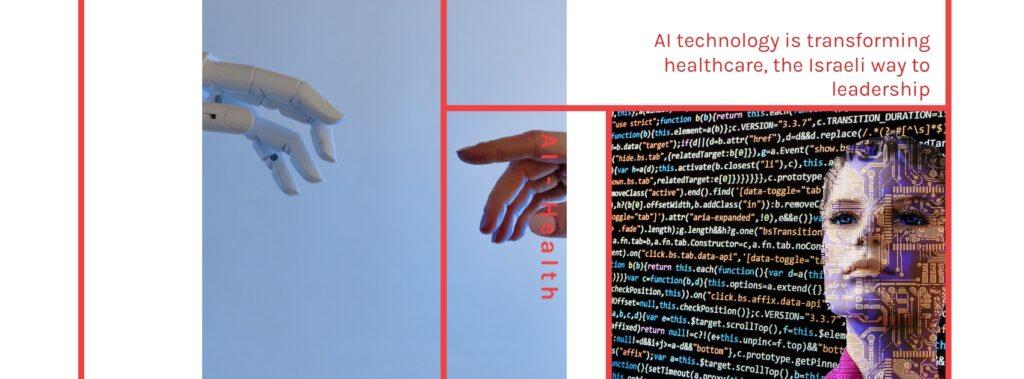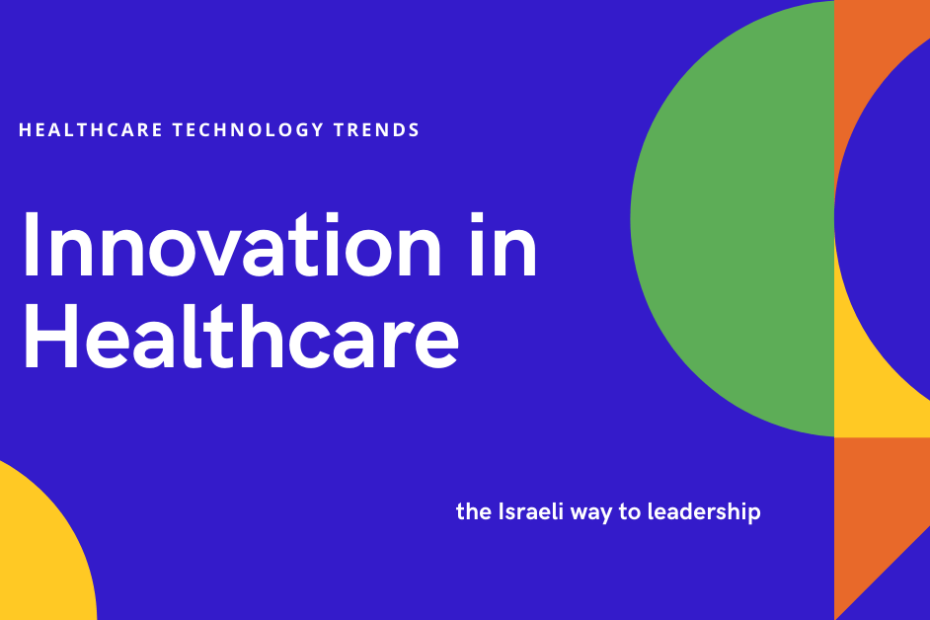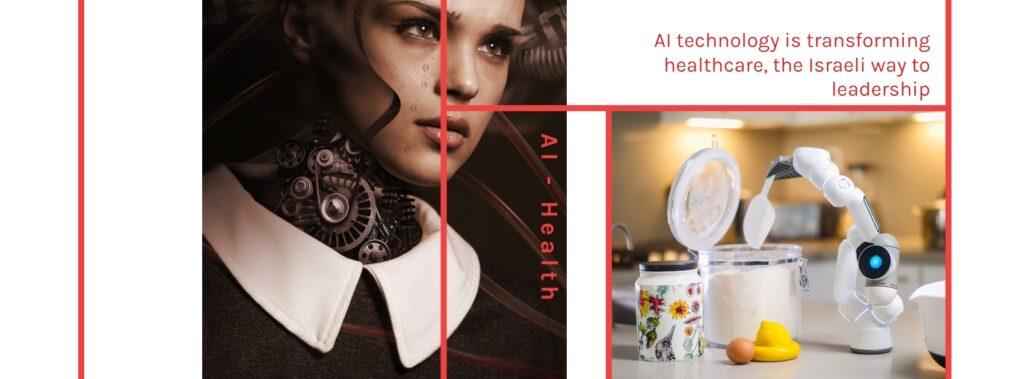Last updated on January 7th, 2024 at 04:45 pm
Health and healthcare innovations don’t just involve new technology; they also include innovative ways of delivering healthcare services, as well as new approaches to working within the existing systems.
Health care technologies: Startups in Israel tackle some of today’s toughest and most complex health challenges.
Table of Contents
ToggleInnovation In Healthcare & Health Information Management
Artificial Intelligence (AI), which has been making waves in recent years, is now becoming part of our everyday lives. It’s important for health care providers to understand AI and its implications for patient care.
Medical innovations usually involve technologies that are intended to help prevent diseases.
Artificial intelligence what is?
Artificial Intelligence (AI) is the use of computers to simulate human intelligence processes. It includes expert systems, natural language processors, speech recognizers, and image analyzers.
Artificial intelligence versus Machine learning
Artificial intelligence (AI) is all about doing things humans do quickly and efficiently, but at a lower cost than humans. Machine learning is a subcategory of artificial intelligence that allows computers to learn from experience and improve their performance through repetition.
AI is all about automating tasks that we humans perform; machine learning is a subset of AI that enables computers to learn from our experiences and improve their performance by repeating them.
What is the difference between ai and machine learning?
Artificial intelligence is a technology that enables a machine to simulate human behavior. Machine learning is a subset of AI which allows a machine to automatically learn from past data without programming explicitly. … AI is working to create an intelligent system that can perform various complex tasks.
Innovation In Healthcare Trends
Artificial Intelligence is transforming healthcare, promising great advances in disease detection and treatment.
Our understanding of the impact these technologies may have on people, systems, and societies are limited, however, especially when it comes to applications in low-resource settings.

AI Health Outcomes Challenge
We need to be sure that AI-assisted technologies aren’t perpetuating bias. We need to verify their findings, and evaluate whether they actually help people live healthier lives. And we need to make sure that these technologies are designed by, for, and with local communities.
We don’t discourage the development of new sources for training ML algorithms, but we do encourage people to use existing data sets.
Do we encourage the development of new sources of data to train machine learning algorithms, especially in data-poor environments?
The Israeli Innovation In Healthcare Sector and AI
There are 161 AI companies in Israel. Many of these companies were founded by people who had previously worked for the intelligence services and then used their knowledge to start cybersecurity companies.
Israel’s new digital healthcare strategy aims to create a personalized digital medical record for each citizen.
Israel will combine their existing digital health database into a single database for use by researchers. They will ask patients to consent to share their data so they may develop new treatments and therapies.
The Mosaic project aims to provide genetic and medical data for researchers and life sciences companies.
Around $170 million is set to be allocated for the creation of essential digital platforms to help researchers, according to an Israeli government report published last week. Another $64 million will be spent on supporting start-up companies. The rest of the funds will be used to revamp current regulations to better facilitate the implementation of digital healthcare.
Healthcare technology trends and the market
The potential to become a leader in the digital health industry is huge for Israel, which presently houses a strong research and development backbone, as well as a significant number of healthcare start-ups specializing in AI, machine learning, and medical devices.
Through the mosaic project, healthcare providers will be able to analyze healthcare trends and improve patient care, provide a quicker diagnosis of illness and deliver bespoke solutions.
Innovation In Healthcare - Case Studies
Case study #1
Roche invests millions in Israel’s health care sector, the Swiss pharma giant is tapping into Israel’s digital healthcare boom…
Roche is investing millions into Israeli health tech startups to accelerate the development of diagnostic technologies. This marks the first time the Swiss company takes part in a venture of this scale.
The pharmaceutical giant has entered into a partnership agreement with aMoon, an Israeli venture capital company focused on health technology and science.
The “StarFinder Lab” collaboration is aiming to help young startups develop innovative diagnostic tools to tackle global health care challenges. These will be focused on AI-powered solutions, machine learning models, and other disruptive digital healthcare apps.
Case study #2
A skin sticker that can diagnose tuberculosis. Technion scientists invent A-Patch to provide a cheap, quick, noninvasive method for diagnosing a disease affecting millions in the developing world
Researchers at Israel’s Technion have developed a revolutionary method of diagnosing tuberculosis without blood samples, X-rays, or other invasive procedures.
The new method, A-Patch, uses a sticker that absorbs compounds released by the skin upon contact. The compounds are then analyzed by an artificial intelligence-based system, which can determine quickly and with accuracy whether or not an individual has tuberculosis.
Clinical trials of A-Patch, conducted in India and South Africa, showed high effectiveness in diagnosing tuberculosis, with over 90% sensitivity and over 70% specificity.
Case study #3
Ibex Provider of AI-based analytic solution for cancer diagnostics
Provider of AI-based analytic solutions for cancer diagnostics. The company has developed an analytical and diagnosis platform called the GALEN platform which assists with treatment diagnosis and planning.
Other products such as First Read and Second Read use AI technology for the diagnosis of cancer-based on pathological image analysis.
The platform uses computer vision-based image analysis and machine learning technologies in digital pathology.
Case study #4
Healthy.io Home-based urine analysis using the smartphone
Healthy.io (formerly called OwnHealth) has developed an app that uses image-recognition technology which helps doctors to diagnose their patients.
It has leveraged smartphone and cloud technology to provide the benefits of color-based healthcare and medical imaging.
It claims that the app can read images of test strips photographed by the user, regardless of the smartphone operating system or the lighting condition the image was taken under.
Minuteful for Wound helps clinicians make better care decisions using the smartphone camera to accurately capture wounds and analyze their progress. Wound data can be securely used and shared by the care team.
Detect undiagnosed CKD – 10% of Britons are at risk for chronic kidney disease (CKD) but most don’t do their annual urine test because life gets in the way. Minuteful Kidney enables people to conduct the test at home with a smartphone, enabling early detection.
Case study #5
MDIHEALTH, Manage patient medication therapy quickly and effortlessly with MDI’s identification, analysis, and monitoring platform. A Paradigm Shift in Medication Treatment
Current solutions focus on 1:1 interactions and adherence, leading to partial analyses, laborious processes, and a lack of standardization of outcome quality.
In contrast, MDI’s proprietary technology performs optimized, multi-drug analyses to generate comprehensive medication reviews within minutes and at scale, resulting in consistent, high-quality outcomes.


We were taught this in computer and I found it really boring
Your blog post makes it interesting and Easy to understand??
Thanks Anita
You’re welcome
thank you for sharing this! content really is king when it comes to blogging
Thank you for the response. Hope to cooperate soon
Breakthroughs in healthcare innovation are changing the game! Precision medicine, wearable devices, and personalized treatments are paving the way for better patient outcomes
The healthcare industry is constantly evolving, and it’s important to stay up-to-date with the latest trends and innovations.